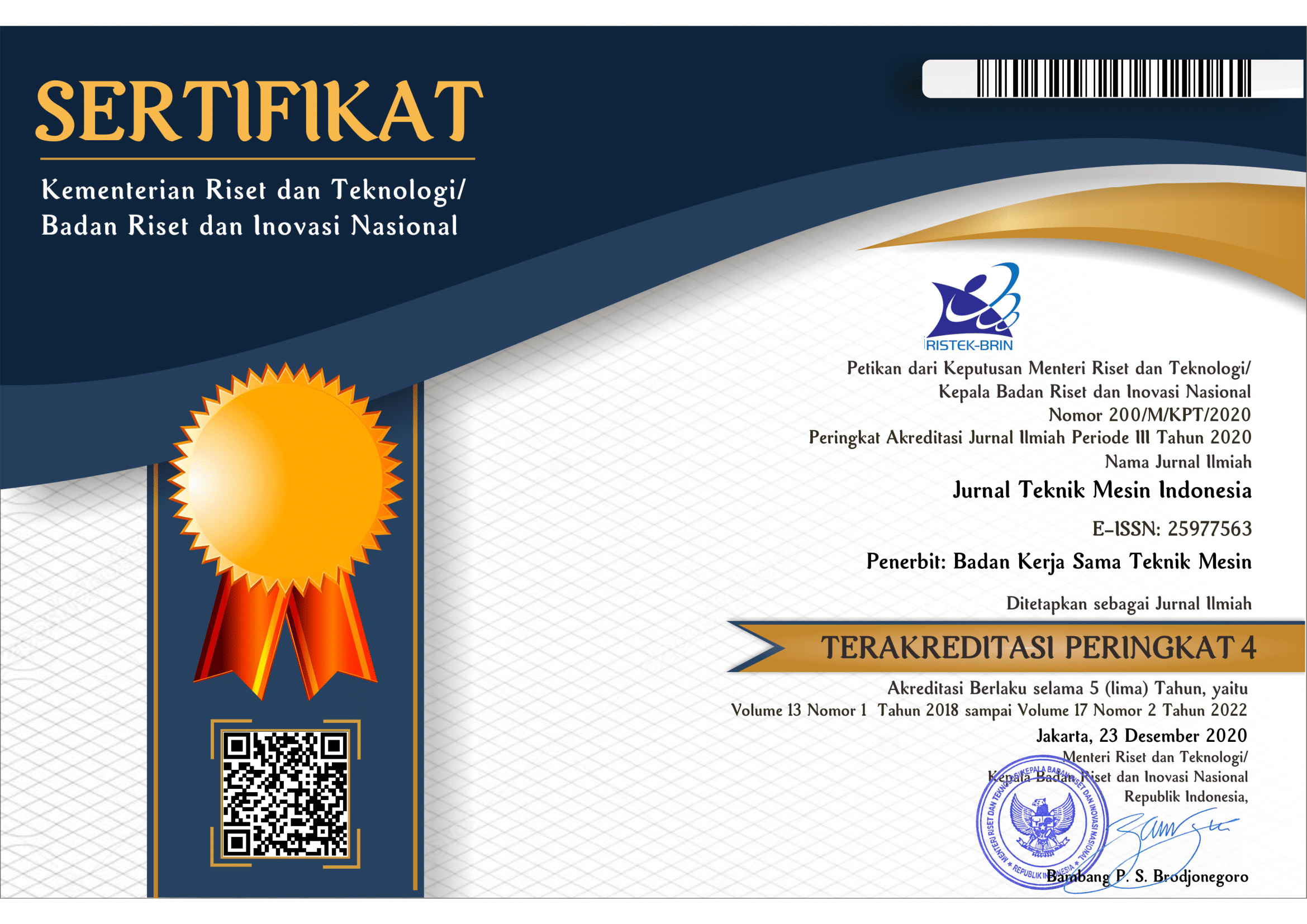Investigasi keandalan heater dan cooler fasilitas simulasi sistem pasif-05 (FASSIP-05) berdasarkan hasil komisioning tahap pertama
DOI:
https://doi.org/10.36289/jtmi.v18i2.495Keywords:
NPP, FASSIP-05, commissioning, heater, cooler, heat fluxAbstract
The Daiichi Nuclear Power Plant accident in Fukushima, Japan 2011 gave urgency to developing a passive nuclear reactor cooling system, especially in terms of thermal management innovation. The laboratory has conducted research and development of passive cooling systems by building several small to large-scale experimental facilities, one of which is the FASSIP-05 Pressure Rectangular Strand. It is necessary to commission the facility to define operating limits before use. This research aimed to determine the reliability of the heater and cooler components. The commissioning method is carried out by turning on the heater at a maximum power of 4000 W, then stopping when it reaches the temperature set points at 60°C, 70°C, 80°C, and 90°C. The commissioning results show that the heater can reach the set point conditions well, changing the initial temperature of 26°C to 90°C in 2282 seconds with a data confidence level (R2) of 0.9965 and the lowest overshot of 1.1% when it reaches steady state. The ability of the system to maintain the temperature set point for 3 hours was found to be very good with an average of 60.16°C, 70.10°C, 80.09°C and 89.92°C. The results of heat absorption still require improvement, with the lowest value reaching 217.71 W (5.4%) and the highest at 465.56 W (11.64%), which causes a significant heat loss. Cooling reliability needs to be improved. Cooling the tank from 27.26°C to 16.69°C takes 4501 seconds, with an average temperature increase of 0.00235°C/second. The reliability of heat absorption at steady state is 4.0617°C and the highest heat absorption capacity is only 0.37 W.










